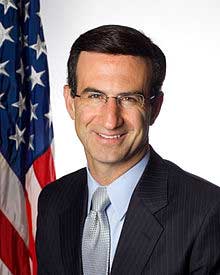Bringing Economics to Scale
A launch event for the nationwide distribution of TC's curriculum on the national debt draws the former budget director for the Obama administration and others
A launch event for the nationwide distribution of TC’s curriculum on the national debt draws the former budget director for the Obama administration and others
By Patricia Lamiell
Is it fair to tax a billionaire at the same rate as someone earning the minimum wage?
Kathryn Swallow (M.A. 2010) recently put that question – which was adapted from “Understanding Fiscal Responsibility” (UFR), a social studies curriculum created by TC faculty and students, to the juniors and seniors in the math classes she teaches at the Community School for Social Justice in the South Bronx. The students calculated the impact of a 22 percent flat tax on earners at a range of levels – but to the question “is it fair?” there was no right answer. “That really gets to the issue of what kind of society we want to be,” said Swallow. “My goal is to get them ask good questions and get them to think.”
